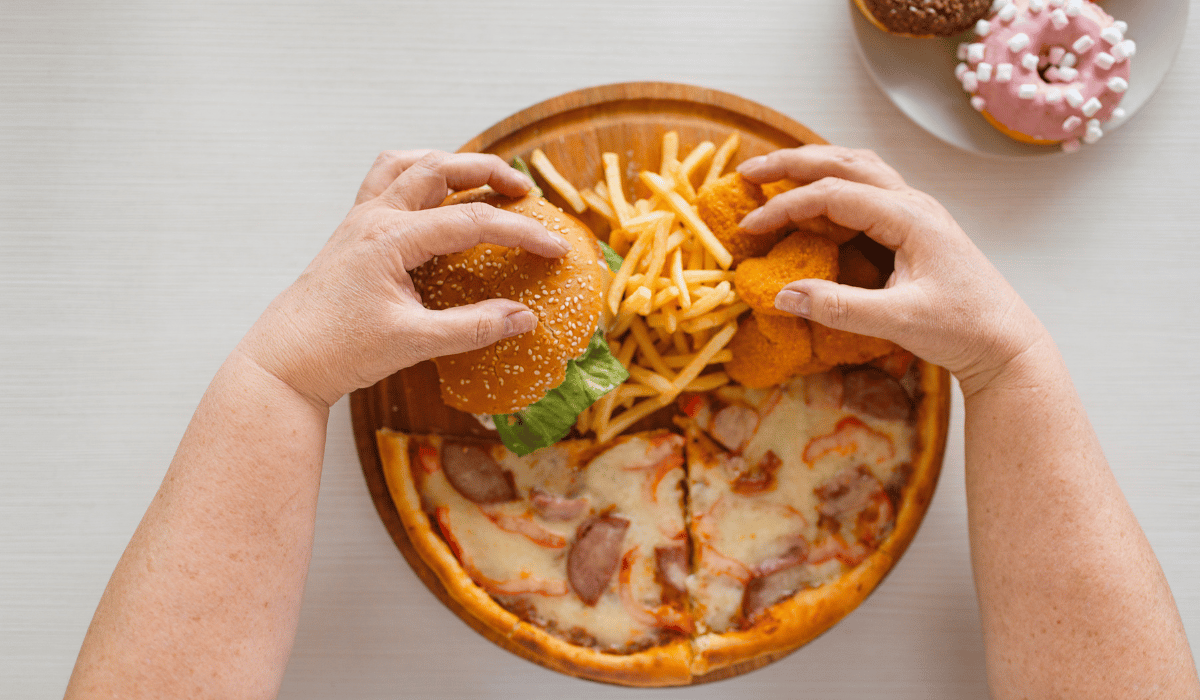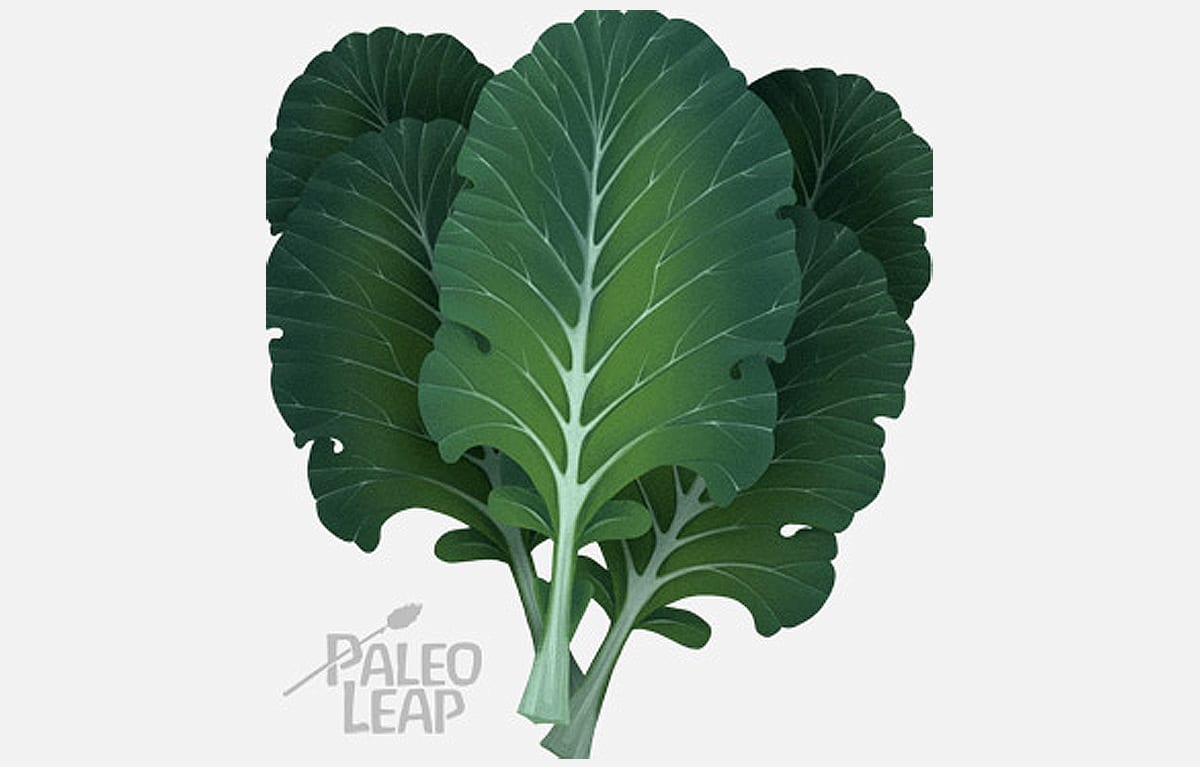
Why do real people eating Paleo or keto diets get such amazing health benefits even though studies of “high-fat diets” constantly suggest that eating lots of fat will give you everything from colon cancer to diabetes?
One possible reason: most “high-fat” study diets are also (a) pretty high in sugar and (b) very low in fiber. Instead of calling them “high-fat” diets, it would be more accurate to call them “high-junk” diets because they mimic the nutrition you’d get from junk food.
That’s useful if you want to study the typical American diet (ice cream, potato chips, cheese on everything, not a vegetable in sight) but not actually helpful at all if you’re thinking about a high-fat Paleo diet (butter, eggs, avocados, all on top of a big pile of vegetables). One key difference between Paleo and the typical Western diet is taking out fiber-poor processed carbs and adding in fiber-rich unprocessed carbs (typically in much smaller quantities).
Here’s how fiber fits in as a complement to the fat in a Paleo-style diet: why it’s helpful, where to get it, what to do if you have a FODMAPs sensitivity or a similar issue, and the scoop on supplements.
Fiber and Fat: They’re Better Together
The short version: fiber and fat help smooth out each other’s rough edges and fill in each other’s gaps.
The benefits of eating fiber on a high-fat diet include…
- Better nutrient absorption: fat helps you absorb the fat-soluble nutrients found in fiber-rich vegetables, like vitamins A and E. In fact, certain types of fiber even reduce absorption of antioxidants from fruits and vegetables, but fat reduces this problem.
- Balanced calorie density: fat is super calorie-dense (it has a lot of calories per bite), but fiber is exactly the opposite. Fiber is one of the most filling, least calorie-dense nutrients you can eat. Meals rich in both (e.g., broccoli with butter, salad with olive oil) get you to that happy median where you can just eat until you feel full without gaining weight.
Weight-loss and metabolic benefits via better gut health
Another reason to pair fat and fiber is the benefits for weight loss, insulin sensitivity, metabolic function, and liver health...all of which come indirectly through your gut.
Let’s start off with this study. There were a bunch of diets in the study, but the interesting one is the high-fat, high-protein, low-carb (22 grams net carbs) diet. The low-carb folks weren’t eating junk; they got common low-carb foods like scrambled eggs for breakfast. They ended up eating less than 9 grams of fiber per day, on average.
The low-carb diet…
- Reduced total production of butyrate, an anti-inflammatory, cancer-protective fat
- Reduced the number of good bacteria in the gut
- Reduced the number of fiber-derived antioxidants (yes, you can make antioxidants from fiber! So cool!)
They did lose weight, but this isn’t exactly the greatest of possible outcomes.
This study showed that a high-fat, low-carb diet without fiber isn’t ideal, but there’s also evidence from animal studies that adding more fiber - without necessarily adding more net carbs - helps reduce/prevent these problems.
Take this study, for example. Mice ate a high-fat diet without fiber and it messed up their gut biome and increased inflammation. But if the mice got prebiotic fiber, inflammation went down and glucose tolerance improved. This one also found that eating more beta-glucans (soluble fibers found in plant cell walls) reduced weight gain, normalized appetite hormones, and improved insulin sensitivity in mice eating a high-fat diet.
In this paper, another type of fiber, chitin-glucan, made slightly different changes to the gut biome. In this case, researchers fed mice a high-fat diet and found that all the junk food reduced the concentration of a specific type of bacteria (clostridial cluster XIVa, for the curious). But the fiber completely resolved the problem, normalized the gut bacteria, and also “significantly decreased [high-fat diet]-induced body weight gain, fat mass development, fasting hyperglycemia, glucose intolerance, hepatic triglyceride accumulation and hypercholesterolemia, independently of the caloric intake.” Not bad!

Here’s another study, this one on mice specifically bred to get heart disease. The mice got either a high-fat diet with no fiber or a high-fat diet with some fiber. The fiber group had much lower accumulation of plaque in the arteries (atherosclerosis). And one more: in this study, the combination of Omega-3 fats (from fish oil) and pectin (a type of fiber found in apples and a lot of other fruits) had unique benefits for preventing colon cancer. The researchers explained the effect by pointing to changes in gene expression in the colon.
In the case of the mouse studies, it’s a little bit muddier because the “high-fat” diets were sometimes also pretty high in junk carbs, so they weren’t the same type of whole-foods high-fat diet in the human study. But from the human study, it’s pretty clear that even whole-foods high-fat/low-carb diets aren’t ideal for gut health if they don’t get you enough fiber. This study confirms: lack of fiber is bad even if you aren't eating junk carbs.
The main point is that high-fat diets without any fiber do sometimes cause problems for gut health. When you take out junk carbs (if applicable) and add in fiber, the “high-fat diet” starts looking a lot better!
Fiber choices for low-carb diets
Now for the practical side. Fiber doesn’t just come from oat bran! Some fiber-rich low-carb foods include…
| Food name | Net carbs (grams) | Total fiber (grams) |
| Asparagus - 1 cup, raw | 3.4 | 2.8 |
| Almonds - ¼ of a cup | 3 | 3 |
| Eggplant - 1 cup, raw | 2.32 | 2.5 |
| Cauliflower - 1 cup raw | 3.22 | 2.1 |
| Collard greens - 1 cup raw | 0.45 | 1.4 |
| Summer squash (e.g., zucchini) - 1 cup, measured raw | 2.59 | 1.2 |
| Lettuce - 1 cup shredded | .55 | 1.0 |
| Spinach - 1 cup raw | 0.39 | 0.7 |
Even from the random selection of vegetables above, it’s pretty easy to beat the measly 9 grams of fiber that the men were getting in the study above! You could even stay within their carb limit of 22 net carbs and get more than 9 grams of fiber! It’s not actually that hard and it doesn’t require supplements, just vegetable-heavy meal planning.
What if I have a fiber sensitivity?
Some people are legitimately oversensitive to fiber - especially a particular group of fiber types called FODMAPs (learn about FODMAPs in more detail here). When they eat fiber-rich foods, they get symptoms from gas and bloating to constipation/diarrhea to awful abdominal pain.
If that’s you, all the fuss about fiber might seem really annoying: sure, it would be great, if only you could eat the stuff without spending all afternoon on the toilet! One common first step is probiotics - finding a good probiotic can be tricky (tips here) but they do make all the difference to some people.
One strategy to try is to eliminate only the worst offenders (typically onions, garlic, brassica vegetables like broccoli and cabbage, and huge amounts of fruit, plus anything that specifically bothers you personally). If that fixes you, then you’re totally fine because there are tons of other fiber-rich foods left in the world for you to eat! If your symptoms are worst/only there with fruit, it might be a problem with fructose/fructans and you might be just fine with vegetables instead.
If nothing else works, some people really do need a low-fiber diet as a therapeutic intervention, at least temporarily. But it might be worth coming back to a fiber experiment in a few months after giving your gut time to heal.
Can I just take a supplement?
Probably not. As this study puts it:
“Fiber supplements cannot be presumed to have the same health benefits that are associated with dietary fiber that is intact and intrinsic in whole foods. The clinically proven health benefits for fiber supplements are associated with specific characteristics (eg, viscous gel), and only a minority of marketed fiber products provide health benefits"
All of the studies above used different types of fiber that are found in different plants, suggesting that there’s no one magically perfect fiber choice.
Summing it up
A typical Western diet is high in fat and low in fiber, which is probably one reason why Western diets cause so many health problems. But if your high-fat diet is also high in fiber (even if it’s low in digestible carbs), it’s a completely different story.





Leave a Reply